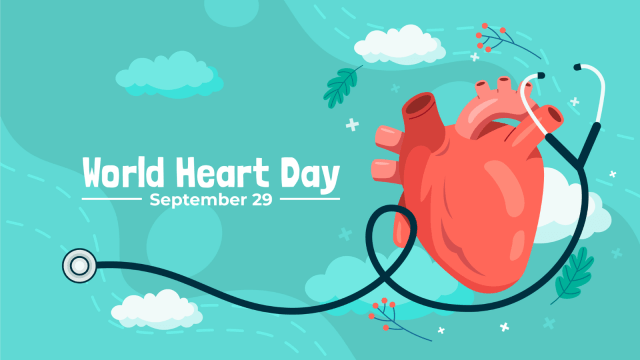Preventing heart attacks: What should you be eating in your 20s and 30s
As young people have processed and fast foods, the risk of early heart disease goes up.
 Studies show that plant-based proteins, like legumes, pulses, and soy, help lower cholesterol levels and reduce the risk of heart disease. (Photo: Illustration from Freepik)
Studies show that plant-based proteins, like legumes, pulses, and soy, help lower cholesterol levels and reduce the risk of heart disease. (Photo: Illustration from Freepik)In your 20s and 30s, it’s tempting to ignore concerns about heart health, especially in India, where the vibrancy of our food culture often overshadows health priorities. However, heart disease doesn’t wait for old age. India has seen a surge in heart-related conditions among younger generations, driven mainly by poor diet choices, sedentary lifestyles, and stress.
As many young people are shifting from traditional home-cooked meals to processed foods and fast foods, the risk of developing early signs of heart disease is particularly high. What then is a heart-healthy diet?
1. Whole Grains Over Refined Grains
White rice and refined flour (maida) are staples, can spike blood sugar levels and increase the levels of risky small and dense LDL (low-density lipoprotein) particles in circulation, which can clog up the damaged areas of the arteries to form plaques and blockages. High maida in your diet also produces a lot of triglycerides, as maida is broken into glucose in the body for absorption. This excess glucose is readily converted into triglycerides (blood fat/lipids) in the body, which is also linked to lowering HDL cholesterol (the good cholesterol). Whole grains, like brown rice, jowar, bajra, and oats, are better alternatives as they are rich in fibre, which helps in lowering total cholesterol and stabilising blood sugar.
Tip: Start your day with a bowl of oats or make a roti with whole grain flour for lunch. These small changes are not just easy, but also delicious and satisfying.
2. Healthy Fats: Choose Wisely
Mustard oil, olive oil, and groundnut oil are rich in monounsaturated fats, which help lower bad cholesterol. On the other hand, added oils high in saturated fats (such as coconut oil and ghee, in excess) can increase your risk of heart disease. Additionally, foods like almonds, walnuts, and flaxseeds, which are abundant in omega-3 fatty acids, are great for reducing inflammation and supporting heart function.
Tip: Cook your meals using mustard oil or olive oil and snack on a handful of nuts daily to boost your intake of healthy fats.
3. Eat More Fruits and Vegetables
Fruits like guava, pomegranate and papaya and vegetables such as spinach, tomatoes, and bell peppers are packed with antioxidants, fibre and essential vitamins that promote heart health by reducing oxidative stress or cell damage and inflammation.
Tip: Include a fruit or two with your breakfast and a vegetable-rich dish at lunch and dinner. You can even add fruits like pomegranate or cucumber to your salads for added flavour and nutrition.
4. Go for Lean and Plant-Based proteins
The traditional Indian diet offers a variety of protein sources, from lentils (dal) and chickpeas to fish and chicken. Studies show that plant-based proteins, like legumes, pulses, and soy, help lower cholesterol levels and reduce the risk of heart disease. Meanwhile, lean animal proteins like chicken and fish (especially fatty fish like mackerel and salmon) are excellent sources of omega-3 fatty acids, which are known for their heart-protective effects.
Tip: Try having dal or rajma with your meals and include fish like Indian mackerel (bangda) in your diet once or twice a week.
5. Cut Down on Salt and Sugar
Excess salt raises blood pressure, which is a major risk factor for heart disease, while excessive sugar contributes to obesity and diabetes, both of which are linked to heart problems.
The World Health Organization (WHO) recommends consuming less than 5 grams of salt per day, but the average Indian intake is far higher. Similarly, reducing total daily sugar intake within 90 grams per day not only helps in weight management but also reduces the risk of heart disease.
Tip: Flavour your food with spices like turmeric, cumin, coriander, and ginger. When you’re craving sweet, opt for fresh fruits.
(Thakkar is a functional medicine expert






- 01
- 02
- 03
- 04
- 05

























